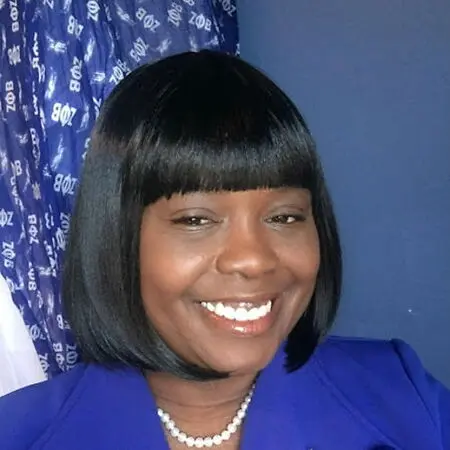Yvonne Swain

Yvonne Swain is an experienced and innovative Training and Instructional Design Manager with over a decade of success leading training initiatives across the healthcare, customer service, and operations sectors. She has collaborated with organizations in Texas, Iowa, and Arizona to launch and scale call centers, where she developed comprehensive training programs, including e-learning, virtual modules, operational manuals, and job aids. Her work has impacted over 500 professionals across all levels, from executive leadership to front-line staff, with a strong emphasis on clinical and healthcare-related training.
Yvonne’s approach integrates cross-functional collaboration and data-driven analysis to continuously improve learning outcomes and performance. She has led instructor-led and remote training efforts in highly regulated environments, with specialized content in clinical, medical, and diabetes education. Her ability to tailor programs to meet both client-specific needs and broader organizational goals has made her a trusted leader in instructional strategy and performance improvement.
Currently, Yvonne is pursuing a Doctor of Education (Ed.D.) in Trauma-Informed Care at Liberty University, reflecting her deep commitment to impactful, compassionate, and inclusive learning environments. She also holds a Master’s degree in Christian Leadership from Grand Canyon University and is actively involved in professional organizations, including the Association for Talent Development and Zeta Phi Beta Sorority, Inc. Yvonne brings a unique blend of academic insight, leadership, and real-world training expertise to every project she leads.
• Liberty University
• Grand Canyon University
What do you attribute your success to?
I attribute my success to over 20 years of experience in training and development, with a strong focus on trauma-informed care. My work is grounded in the belief that effective learning must be empathetic and human-centered, especially for individuals affected by trauma. Currently, as a doctoral student at Liberty University, my research explores how trauma-informed frameworks can support adult learning and workforce resiliency. This approach allows me to bridge technical training with emotional awareness, creating learning environments that promote both growth and psychological safety.
What’s the best career advice you’ve ever received?
The best career advice I ever received was to build a career that aligns with your values, not just your résumé. A professor once told me to be ready for the messages the world sends—and reminded us that *“no one can make you feel inferior without your consent.”* That quote gave me the confidence to stay true to my path. I’ve also learned not to be afraid to pivot; some of my most meaningful growth came from saying yes before I felt ready. Most importantly, protect your *why*—it’s what keeps you grounded and reminds you why your work matters.
What advice would you give to young women entering your industry?
My advice to young women entering this field is to lead with both knowledge and empathy. In trauma-informed work, how you deliver information is just as important as what you deliver—connection matters just as much as content. Prioritize psychological safety in every interaction; it’s not only ethical, it’s strategic.
Remember, you are not what happened to you—you are what you choose to build from it. Your story has power, even if you're still finding the words. Healing isn’t always loud or linear, but your presence, your voice, and your resilience are powerful forms of advocacy. Don’t let anyone make you feel small for surviving.
What are the biggest challenges or opportunities in your field right now?
One of the biggest challenges in the field right now is helping organizations navigate AI integration without losing the human element in learning. Many teams are still developing AI literacy, and there's uncertainty around how to adopt new technologies in ways that enhance—rather than alienate—learners. Another challenge is measuring ROI, especially in areas like trauma-informed care, where the impact isn’t always immediate or easily quantifiable. Add budget constraints and shifting priorities, and it becomes a complex landscape—but it’s also a space full of opportunity. These are the kinds of puzzles I’m passionate about solving.
What values are most important to you in your work and personal life?
Faith and advocacy are the values that guide everything I do, both professionally and personally. My work in domestic violence prevention is especially close to my heart—I was honored internationally this year for supporting survivors, and I’ve been actively involved with safe houses, local coalitions, and health-focused initiatives for vulnerable communities, including children in dialysis centers.
At the core of it all is a commitment to restoring dignity, agency, and hope. Whether I’m designing a training or supporting a community program, my goal is always the same: to empower people not just with skills, but with the belief that healing and self-sufficiency are possible.